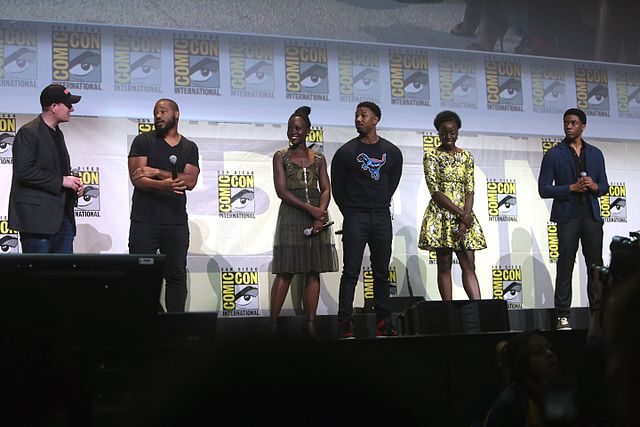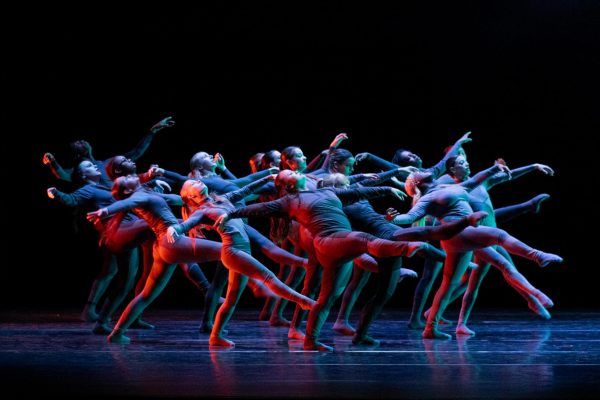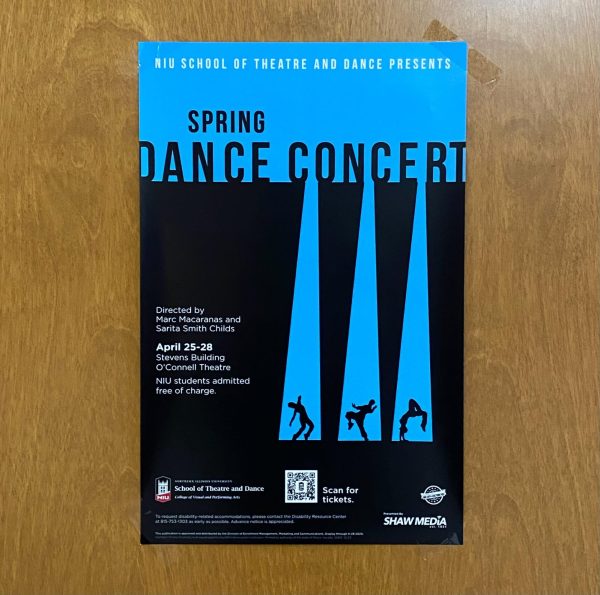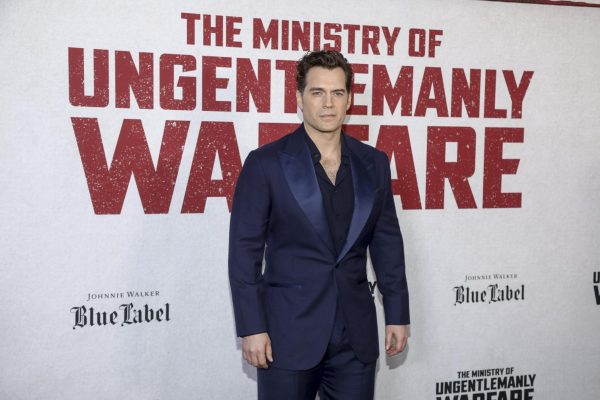The importance of Afrofuturism
Gage Skidmore | Wikimedia Commons
Kevin Feige, Ryan Coogler, Lupita Nyong’o, Michael B. Jordan, Danai Gurira and Chadwick Boseman speaking at the 2016 San Diego Comic Con for “Black Panther” (Gage Skidmore | Wikimedia Commons)
Afrofuturism is a cultural aesthetic in music, art and literature that combines themes in science fiction, fantasy and even history to explore the broader, Black experience. It connects people from the African diaspora with their forgotten African ancestry. The term came to be in the early ‘90s, but themes of the genre had shown prominence amongst the Black community for decades, according to scholars of UCLA.
It is heavily associated as an aesthetic in the art community, according to the TATE art collection. Artists have produced great Afrofuturistic pieces that invoke so much meaning and emotion, but Afrofuturism transcends just being an art aesthetic. It has potential to become something greater by showing the beauty of African cultures and people, blended with beloved genres like science fiction. In fact, that’s actually the purpose of Afrofuturism in the first place. Yet, it still has not reached the level of success or notability that it deserves.
Many may not be able to completely define Afrofuturism or are unaware of the clear examples of what it entails. That’s not the fault of people, but more so the fault of the media that we consume and how different races and cultures are portrayed in the media. This is why representation matters and more Afrofuturistic films are needed.
One of the best examples of Afrofuturism in cinema is the 2018 film “Black Panther” directed by Ryan Coogler. The film is based in the fictional African country of Wakanda that is technologically advanced and has never been colonized. This film resonated with Black audiences because nothing like it had been seen in terms of having a primarily Black cast that portrayed a combination of various cultures in the African diaspora in such a positive light.
Even before “Black Panther” films like “The Wiz” are some more examples of more mainstream examples of Afrofuturistic themes that audiences may be familiar with. The themes never have been, nor should they ever be, limited to film representation, but it is gratifying seeing them portrayed in an uplifting and unique way on the big screen for others to see and be able to engage as well.
The main point of Afrofuturism in any medium is to subvert stereotypes and is about people in the diaspora being able to take back their ancestral heritage and represent themselves how they want to be represented in fictional genres that are loved by the masses, but traditionally have not represented Black people to reflect the diverse world around us.















